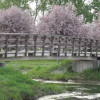Sick of Losing Traffic? Here's Something to Think About
A few weeks ago, I posted some thoughts on why traffic is falling for many writers and what we might do about it. One of the things I considered is that massive rewrites and fresh articles may be the ticket to clawing back on some of these traffic drops.
Here is some more food for thought on that for anyone who is interested:
https://www.orbitmedia.com/blog/update-old-blog-posts/
Even if you don't feel like digging through analytics there are still a few nuggets here.Thanks. Great ideas here.
I am wondering if rewriting an article will also cause it to show up again on Pethelpful. For instance, if I rewrite ¨5 Best Dog Breeds for People With Athletes Foot¨ and make it ¨21 Best Dog Breeds for People With Athletes Foot¨it may change on Google, but what about the niche site? Do you have any idea?
(No, I have not written that article!)Any changes you make to the article will be reflected on the niche site, including title. Big change, small change, doesn't matter. You'll still only have one article on the same url.
Changes and updates need to pass through the editors, as you know, but I believe there is only like a 5-minute delay until changes made in the text editor show up on the live article on the niche site.
I suppose it is possible there is some kind of trigger that prevents a niche site article from updating and holds it for review when massive changes are made, but I have never experienced that. Here is another situation where some guidance from staff would be helpful.
But you'd always only have one article, unless you wrote a new one on a new url.
Am I understanding what you meant?Not really. Pethelpful is my second largest traffic source, after Google, and I am sure it could be better but they only seem to highlight new content. I am wondering if an extensive rewrite would change the placing of my articles on the site.
I do not think so but do not know. I think the algorithm only shows new stuffLOL. Sorry. I kind of thought everything I just explained was probably stuff you already knew.
I don't think it would matter either, but have you noticed a bump in traffic when your articles are displayed more prominently on the site? I can't say I ever did, but dogs are more popular than fish so maybe it makes a difference.
PetHelpful is my #2 source as well. I always suspected most of my referrals come from my own text links and the Read More widget. Probably some come from people browsing around the site, but most I'd guess most come from people brought in by search who then click another link.No. Mine are just shown when new. Still no Idea how readers find things but maybe it is all from Read More
One issue with the Read More widget is that they are cramming those "news" snippets into it instead of actual articles. So, that means lost traffic opportunities for us.
But I guess people who search for info on pet care also need to know that a kitten is friends with a donkey.Yeah, vital info. I often lie awake nights wondering about how kittens get along with donkeys!!!!!
My stuff gets rewrites from editors, minor changes, and sometimes I add 100 names to an article and update that in the title, and effectively double the content. That does not appear to make an impact on the Pethelpful "Dog Names" highlighted articles page. I base this on my only having one article on that page now, while Mr. Livingston seems to have a lock on that page.
I too have gotten a lot of traffic from Pethelpful. Sometimes I help myself, by adding links to similar articles at the end of my article, some must come from the related articles in the sidebar. Since my number of views has slipped, I can't say whether that is due to Google or being removed from the PH Dog Names page.
I don't know if losing all of those links to my articles impacted the articles' rankings either. Any thoughts are appreciated.I think a lot of it is because only that other person is showing up. Page rank on Google has not changed much, at least for me.
Melissa Smith uses link capsules in her articles to point out what she has done in the past, which may be one way to get around this unfortunate algorithm. I am not sure.Last night when I was bored I added a few numbers/title changes to some old dog name articles that have 0 traffic. They are all showing up this morning on the PH front page but are not on the dogs name page. I wonder if you edit your excellent dog name articles if they will show up on the front page?
It seems like the only way to show up on the names page is to add a lot of useless names and make a new article with lots and lots of names. That seems to be what is ranking on Google too. No matter how much an article helps a puppy owner find a new name does not seem to matter, just adding 200+, 300+, etc.Yep, I try to find themes that belong to a specific breed or trait and expand on that. Some of these long list, 200-350, name articles have the same mix of names over and over again, and mostly the are just random people names.
Also, they don't actually have 200-300 names listed. I counted.
Google is not differentiating between word count and listed content. So they write a couple of paragraphs about how to think about how to name your dog, "Go outside and call the name 5 times. How does it feel?..." They keyword stuff there, then those words in paragraphs are used to obfuscate the fact that they only have 125 names listed.
Blog style is ranking well now too. A list of names, scroll down to another unrelated list of names ad nauseum.
Erik, I've read and bookmark this thread yesterday. Early, this year I was doing 3 re-writes daily, and I notice slight rises. But when I defer to write new stuff, the opposite took effect. Seriously, I'm at the moment writing another new read. When done, I'll spent the next two to three weeks to update all my writes. Thereafter, I'll update regurly. Thanks.
This is all great advice.
Unfortunately, I suspect that many of the people who need it most will likely ignore it. (Maybe I'm being too fatalistic/cynical).
The worst sin is to not update at all. That's maybe one reason why HP are employing more editors, because many hubbers just aren't doing it themselves.
As the article points out, one mistake that writers make is to focus too much on articles that are badly failing, when more joy can be achieved by improving the successful articles, or by attempting to make the almost-successes into successes. Paul E posted about this some years back and I've been trying to follow his advice ever since.
The SEO stuff is vitally important, but I feel like most online writers just try to get along without it, or take only a mild interest.
That said, many of the problems here will only be solved by HP. There are limitations on what writers alone can do to increase views and help the site.I agree that many issues can be solved or at least better managed if HP makes some different decisions. I think creating a better UX by cleaning up ads and getting rid of that top video would make a huge difference.
How long does it take you to actually refresh an article vs fixing grammar and spelling mistakes? I don't actually look at any of my articles right now unless they have been edited by staff.
I didn't get a chance to read through the whole link yet, but I wish I had the time to utilize some of these ideas! There are a couple articles I have been meaning to try and update and get back to the first page of Google, but I feel like I don't have the needed time currently.
I'm not noticing the big decrease that I have seen others mention in the forums, but I really only get steady traffic from 3 articles and they have been holding steady all year. I would love to get some lost traffic back from some of my other ones, but I'm at a loss on how to update and refresh them. What kind of information can you add to articles that are meant to be evergreen? I know some of mine could do with some upgraded photos, but in terms of information not much, if anything has really changed for some of my work.
Some of my articles actually lost traffic after major updates, either by me or staff which makes me reluctant to even spend time on them again. I keep reading fresh/new matters in the eyes of Google, but that has not been my experience at all.
I agree with the niche page's needing an algorithm change. I don't think many people actually search through the sites, but maybe more would if they could see a better variety of what the sites actually have to offer?
Owlcation is my 8th all time traffic source. The rest are all forms of Google, or other search engines. Pinterest actually comes in at #4 which I found surprising. I had quite a bit of traffic from them in the beginning years, but not so much now. I'm assuming in part, because I'm not actually currently active on the platform. Pethelpful #11 and Delishably #12 are well under 20k for total views. I'd love to see those numbers go up, but honestly I've always focused more on Google and trying to get my articles on the front page.Up until now I've always done three kinds of updates. For one, I go through my article with Grammarly or something similar and a look for typos, misspellings, and things that don't make sense. These take like five minutes and at least get an updated date for the article which helps with click-through in the SERPs.
For articles that do well but have out-of-date info, I'll go through and bring everything up to code. For example, I'll need to do that with all of my football articles this summer as stats have changed since last summer's update. Those take longer. Maybe 10-20 minutes each, depending on what needs to be changed.
For articles that flounder out of the gate, maybe six months after publication I will take a look at them and see if I can find a way to include more related information. Those take the longest.
But now I am considering doing these rewrites, and they will take as long as writing a brand new article. This account doesn't need it so much, but I have another account with 250+ articles, some almost a decade old, and I'd guess a least half for them could use a rewrite. It will be a huge project.I'll plan to start with Grammarly. I've never used that or answer the public.
Glenn brought up a great point. I really need to go back through some of my much older stuff and make sure they answer the title right away.
The staff and I redid one together and I was never really happy with it or the new layout. It doesn't immediately answer the question and I think that's why despite the article being on page 1 or 2 (depending on what keywords are used) of Google it doesn't actually get more than a handful of views. Delishably is hard to write and rank for in general these days, but considering it's at least on the first couple pages, maybe a rearrange will result in more people clicking and staying.
I feel that the layout is so much more important now with how the ads are laid out. I took a quick look at the article and it has 19 ads on mobile (13 on desktop) and several that appear in really unfortunate places. Maybe a rearrange will also move some of the ad locations and make it more readable.
I was afraid to edit it earlier, because it was a joint effort, and I didn't want to have it moved back. I also didn't know how I would rearrange it to make it work with the added content, and figured I probably shouldn't remove those capsules. At the time it felt like a huge undertaking to try and redo it, after spending almost two months on it and then having it fail, I honestly kind of gave up and forgot about it. Seeing it still ranking, definitely makes me feel better about going in and updating.
I don't actually look at rankings of articles that don't perform well, because I assume they are lost in the depths. I'll have to see if any others pop up. At least that will give me an idea on what articles might be my best chance at revival.
In my case, I have noted whenever I edit my successful articles, I see an increase in traffic (before even I receive an email from the editorial board that my article still meets that niche's editorial standards).
Editors will always check updated articles, sometimes, immediately, and at other times, a few days.
My largest traffic is from Owlcation.
But I have also noticed when I edit articles on Discover, I see a peak in views.
Even so, sometimes, after an increase in traffic, the views decrease. Some things we can't control but updating an article always works.What can be done for articles that don't lend themselves to being updated? For instance two of my math guides are about how to change between different number bases. Both of them used to get about 1500 visits a day a couple of months after they were published. Now they only get about 150. However there's not not really anything I can add to them as they're already self contained guides.
I don't know a whole lot about writing math articles, but I'd say you'd want to aim for that 10x standard with any updates or rewrites you do.
Here is a Moz Whiteboard Friday on 10x content:
https://moz.com/blog/how-to-create-10x-content
It is pretty involved, and I don't think we can do some of what is mentioned, but it gives an idea.
Look at the top ranking articles for your keywords. What are they doing that you aren't? How can you make yours 10x better than the top articles?
When you search for your keywords, what other keywords appear in People Also Ask and Related Searches? Maybe that will give you some ideas.
Use Answer the Public to get related ideas.
If you don't think it is appropriate to expand the article with these ideas, maybe create related articles and link to them.
It is tough with concrete topics like math, but I'd think if you did nothing you'll never see a change, unfortunately.
I have the same issue with non-math topics, as I'd guess most of us do, which is why I am considering total rewrites for articles that have fallen significantly.I understand Eugene´s dilemma because I often have the same issue with my health articles on dogs. There may be some new diagnostic tests available in some places but if I write the article to help readers find out how to deal with the problem at home there is nothing new to add.
Editors just change a few grammatical things each year to keep the date fresh but it is not what you are talking about, a rewrite. I am still at a loss, so I think your suggestion to write related articles and link to them is the best available solution.I haven't looked at your or Eugene's articles, and you are both writing about topics where I am certainly not an expert, but I am wondering if there could be other ways of presenting information. Maybe you don't necessarily need to write more or add more information, but maybe just create a better user experience than your competitors.
We have tables we can use, but you could also conceivably use a program like Inkscape to create infographics or other visuals that would make the content more digestible and more enjoyable.
I don't know if that makes sense for your topics, but something to think aboutThat is an excellent suggestion, thanks. I have the Inkspace site open on another tab and am reading about it. I think more descriptive images would improve the experience for the reader and I think would lead to more shares and shares on a social media site like Pinterest.
Quite possibly too, it's the overall ranking of network sites that pulls individual articles down the ranks rather than their quality. One of my guides is also in second place when I check for the first 4 words from the title using Startpage.com, which isn't supposed to list content based on previous searches. I think my main problem is that I lost featured snippets for lots of articles and I think Google doesn't show as many snippets as it used to. Snippets boost traffic hugely I've found.
I think you are absolutely right. Those things are beyond our control.
Sometimes, for me anyway, the question becomes: With all of these things I can't change, do I really want to spend countless hours fixing up articles only to have them dragged down by things I can't control?
I spend a lot of time updating older articles. I decide which ones to work on based on the stats. When I see a short view duration, I examine those articles to try to determine why I am losing readers so early.
I usually notice that I started out without clearly reflecting on the promise of the title. If one does not detect that the article will be helpful, they will leave before giving it a chance.
So when I see I made that mistake, I rework the beginning section—aiming to get the reader hooked right from the start.
In addition, when I update, I always consider additional content I can add. I try to do that by thinking in terms of the reader—Imagining what they might be asking after each paragraph. Unfortunately, I don’t always do that when I first write an article. And I find myself coming up with new stuff to include months later when I review them.
Bottom line: Browse through your stats once in a while. Something will always stand out that shows what needs your attention. I do that whenever I have a chance.That's a good point about stating what you're arguing, or going to show or do, at the start before expanding it and restating.
The old newspaper journalist adage was to "say it, and then say it again" but it can be an easy thing to forget. Readers are super-fickle and will just click away on a whim, if they think that you might not deliver the goods.
Sometimes, though, it's difficult for an article to succeed, however well it's written. When I started here I made mistakes like picking topics where the competition was overwhelming, or there just weren't many people trying to find the info that I was supplying.
If an article is already getting 100+ views per day, I find it's easier to get it another 50 or 100, whereas if it's only getting 5 per day, I can sometimes double or treble its traffic, but it's still a relatively small improvement.
I have to consider the most efficient way to use my (limited) time.
I have some power tool guides and I think I'll write related content around those. Most of the time though it's like flinging mud at a wall and hoping some of it sticks as regards whether a guide will do well.
The order of an article can be tricky, I find. I used to try to string the reader along a little in the hope that they'd hang around longer, but eventually I settled for putting all the juicy stuff at the start then going on to explain it in more detail.
If I expand something now, it can typically involve adding related content at the end of the article. I don't want to clog up the early part of the article and risk slowing down the reader. It's a bit like writing fiction in that you want the reader to build up a momentum at the start.Yes I agree and I have tended to do that, over explaining the background information/adding too much detail at the beginning, potentially boring/overwhelming the reader and causing them to back out. It's something I need to remedy in articles. Breaking up large paragraphs into multiple text capsules and maybe interlacing with images can also help. Large paragraphs are a definite no-no I think, unless they're in the form of bullet points.
Yeah, your articles are generally excellent, but I've considered suggesting to you to break up the big paras. I noticed it when I was reading your stuff on Medium. I didn't want to look like an arse, though.
I generally try to stick to the HP suggestion of making my paras no more than three sentences nowadays. Anything bigger is awkward to read on a smartphone. Plus people seem to expect short paras.
It seems like there's something in what the HP editors are telling us to do. They advise regular updates of articles to keep them fresh. I have found that when I find the time to do so, traffic increases. I just wish there were more hours in the day to keep up with everything.
I agree with Liz. It all takes time, but it seems that it is well worth the effort.
Here are some words from John Mueller on freshness and updating articles.
In short, Google wants to see significant updates. Changing a comma or two just to get a new date isn't what they consider updating an article.
We all do it. The editors do it. It does seem to help, maybe at least with click-through. But, according to his statements here anyway, it shouldn't help ranking.
https://www.searchenginejournal.com/goo … -rankings/
Edit: I'll note that they are specifically talking about changing publishing dates here, which HP does not do (I don't think). They give it a new updated date, which appears in search. I believe they are separate in the code, but someone feel free to correct me if I'm wrong. I'm really more focused on the amount of content they are recommending changing to consider an article updated or refreshed.Given that we all have limited time, I think that the toughest skill is to know which articles to apply a major makeover to.
The temptation is to try to fix articles that are doing badly. However, it's really about being able to figure out which articles have the most unrealized potential.
Sometimes, maybe even often, the articles with the most potential for increasing traffic are already doing reasonably well. This can seem counterintuitive.
Unless major editing work is targeted, writers can waste a lot of time. I know this from experience. I think I've got a lot better, but it can still be hit and miss.
Articles that are getting a lot of traffic mightn't even be bringing in much revenue at all, so if the individual earning stats are available these should be made available to us.
This is true. The differences can be big. I know this for sure because I have multiple accounts and big views don't necessarily correspond with big earnings.
Earnings seem to depend on subject matter and also where the readers are located, which makes sense.
I'm not sure why we don't get a more detailed breakdown. Maybe they don't want people chasing the higher rated tags? Or maybe it's just technical.
In the days of Adsense, we knew more..This is a good point. Lately I’ve been editing stories that have been sitting on Discover, or worse, never migrated at all. I find going back to these are good exercises for editing.
It's especially good to come back to these articles if you haven't looked at them in a while and have fresh eyes and an open mind. They're kind of like working on puzzles.
I also think it's good practice to submit content to the niche sites every two weeks, since HubPages offers this as an opportunity to essentially level-up articles.
I too am sick of losing traffic, and something I just discovered makes me even more deflated.
I guess I am behind on viewing my articles as the world sees them, as opposed to the author view. So there is no longer a sidebar of related articles. Instead there is a barrage of completely unrelated articles, sponsored content, at the end of the article and then the PetHelpful related content that had 4 dog related links among 20 links to cat, fish, bird, rabbit, horse articles.
How is that supposed to drive traffic on the site. Someone who came in through search looking for a dog name is going to be interested in horse breeds or hamsters or how to make a hummingbird feeder wreath????
WHY??? Someone please explain to me how that is a solid linking strategy for keeping readers on the site.
I have nothing nice to say about what is happening on the design side of things. One third of the screen is obscured by a video, Two thirds of the way through, you think the article is over, because there is a big block of sponsored content links, then the article continues briefly to another set of sponsored content links, then related articles on PetHelpful.
Seems like suicide to me. Looks like a death spiral in my earnings box.I wish I could make sense of what they are doing, but I agree with you.
And, I have to say, I am really enjoying your forum posts lately.
Thanks! lol - I am always enjoying yours. I appreciate the article you linked to in the initial post.
Something I have learned the hard way, that he mentions, and I will reiterate for others: Don't put numbers in your title when you are entering the initial title for your post. It will stay there and haunt you and Google forever. My first successful article had 25 of Something. Now it is 150 of Something, but the URL still says 25 of Something.
So, if you want to have 5 Tips for Something, 5 Mistake People Make... etc... Don't put the number in the title until you are ready to publish it. It limits your ability to update your article seamlessly. Otherwise you will always have a mismatch between URL and Title.
I mention this since some folks won't read the article you linked to, and I see it happening all of the time on HP.Additionally, while you and I can't make sense of what they are doing design wise, it seems that it must make perfect sense to someone else in control of the ads, layouts and linking schemes.
This leaves me feeling like the person who walked into the room, when suddenly everyone burst out into laughter, then assured me that it was nothing. You know a joke that I just wouldn't get or I had to be there...but I was there. And I feel very uncomfortable about that. The lack of guidance and communication, except regarding technical issues, to help us join in making more success for the whole of TAG .
Are we not all pulling for the same team?
Related Discussions
- 55
Time to stop writing new articles for HubPages?
by promisem 7 months ago
I have been pleased with the audience and revenue for my articles on HubPages since joining the site some years ago.I commend the company for creating the successful niche sites at a time when similar sites were folding. My existing articles that moved to those sites have done even better than...
- 17
Moving articles OFF HubPages to your own site?
by Kate Daily 5 years ago
Just curious, but does anyone have experience with this? How'd you do it? Did you tell Google the article moved somehow or do anything else fancy? Or did you just copy, paste, delete from HubPages, and wait for Google to catch up?Im guessing there might be some duplicate content penalties from...
- 14
Should I add to or edit an article on a niche site?
by Cynthia Hoover 5 years ago
I know here at HP we are told that adding to and editing our high traffic articles is a good idea from time to time. What I am curious about is if that goes for hubs that have been moved to niche sites as well. If I edit something that has already been snipped and edited by staff and moved over...
- 24
Less traffic after moved to niche site?
by Sarah Spradlin 7 years ago
I pretty much have the same amount of traffic everyday but last week 5 of my hubs were moved to niche sites and since then I've has less half the traffic as normal. What could cause that?
- 42
Regarding Article Q&A and Traffic Concerns
by Samantha Cubbison 7 years ago
Because of the way we have rolled out Article Q&A on a site-by-site basis, there are some network sites that have substantially more questions with their own URLs than others. Rest assured, we haven’t seen any direct correlation between changes in traffic and the ratio of questions on a site....
- 19
Discover Victory Thread
by EricDockett 17 months ago
I'm posting this with the hope that we can document Discover moves and semi-accurately understand how the changes are impacting traffic. If you have seen a notable improvement to your traffic since your article moved from a niche site to Discover, please mention it here. For the purposes of this...

















